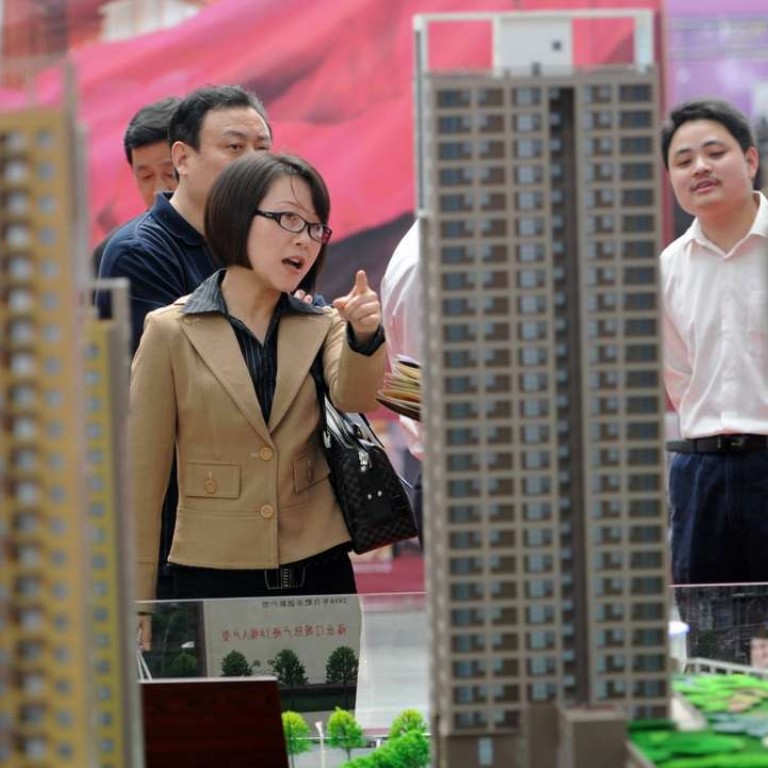
New | Mortgage draw downs slow to a trickle as China tightens credits
The central bank is requiring banks in some cities to monitor their loan amounts every 10 days, instead of the monthly review, to keep a lid on lending
Chinese commercial banks are slowing the ability of their borrowers to draw down on their loans, amid a directive by the People’s Bank of China to tighten the disbursement of credit to keep property prices in check and prevent capital flight.
By tightening the credit pipeline, China’s central bank expects to bring some stability in a sector that has seen rampant price growth in the past few months and even raised bubble fears. But the move has also put lenders in a spot as borrowers are not too happy with the move.
The longer than expected waiting time could lead to disputes, especially from home sellers who are in urgent need of the money, such as paying it for bigger home purchases, said industry sources adding that there have also been instances of actual protests at some bank outlets.
A Bank of Communications branch in Shanghai has delayed the drawdown of a 1.5 million yuan mortgage loan, approved at the end of 2016, by three months until March, said a borrower who declined to be named. The bank’s branch declined to comment when contacted on the issue.
Other banks in Shanghai like China Merchants Bank and China Guangfa Bank have also imposed waiting time of between three to four months after the PBOC directive, said unnamed bank customers.
According to borrower at the Industrial and Commercial Bank of China, China’s biggest lender was still better placed than its smaller rivals in extending loans quickly. But the recent directives could mean some temporary hardships for borrowers, the source said.
China Merchants Bank and ICBC officials declined to comment on the development, while Guangfa was not immediately available for comments.
Known in China as “window guidance,” the Chinese central bank has been using the force of ‘moral suasion’ since late 2016 to regulate the pace of credit disbursement. Much of these moves seek to curb last year’s record 5 trillion yuan (US$728 billion) of mortgage loans, or 39 per cent of the total new yuan-denominated lending in China.
Under the guidance, banks must monitor the amount of their mortgages every 10 days, instead of once a month. New mortgage loans in the first quarter also must be less than the increase in the fourth quarter of the preceding year, according to the guidance.
The central bank has other reasons for concern. China’s home prices rose last year in 65 out of 70 major cities monitored by the statistics bureau. Home prices in Beijing rose by 28.4 per cent, while in Shanghai it was 31.7 per cent higher than in 2015. The Anhui provincial capital of Hefei led the gains, with prices surging by as much as 46.5 per cent, according to official data.
The central bank also raised the cost of capital on February 3, unexpectedly increasing the money market rate on the first business day after a weeklong Lunar New Year break. In a break with tradition, the People’s Bank of China added 0.1 percentage point to the seven-day, 14-day and 28-day repo rates, increasing the cost of funds granted to commercial banks in the interbank market.
“We are busy taking care of clients who are at odds with us for the late extension of mortgages,” said a source from one of the big-five state-owned banks. “In one case, we had to call in the police to settle the dispute.”
Official data showed mortgages slowed down in the last months in 2016 in Shanghai. Banks in Shanghai extended new mortgages valued at a 14-month low of 15.47 billion yuan in December, down 10.12 billion yuan from a month ago or down 5.17 billion yuan than a year ago, according to People’s Bank of China data.
“We expect new mortgages to show a declining trend for months amid the nationwide curbs,” said Chen Ji, a senior researcher at Bank of Communications. “It may stabilise in the longer term pending on how authorities read the effect of the cooling measures on housing prices inflation.”


